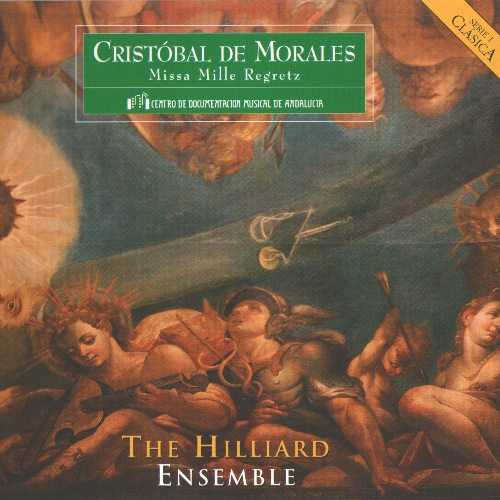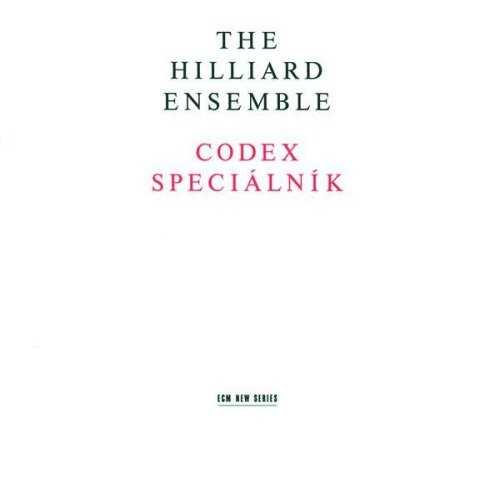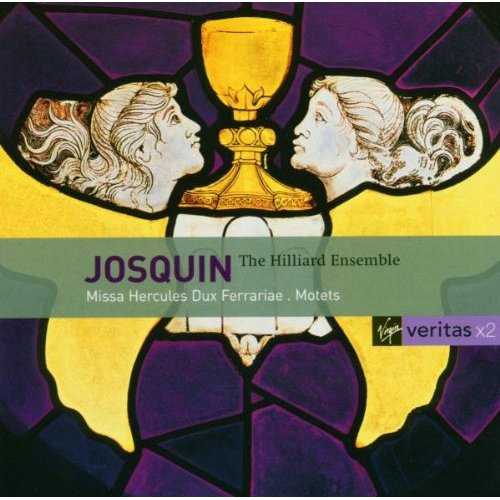
Audio CD
Number of Discs: 1
Format: APE (image+cue)
Label: Almaviva
Size: 318 MB
Recovery: +3%
Scan: yes
01. Missa “Mille Regretz”: Kyrie
02. Missa “Mille Regretz”: Gloria
03. Missa “Mille Regretz”: Credo
04. Missa “Mille Regretz”: Sanctus
05. Missa “Mille Regretz”: Agnus Dei I
06. Missa “Mille Regretz”: Agnus Dei II
07. Missa “Mille Regretz”: Agnus Dei II
08. Missa “Mille Regretz”: Magnificat
09. Missa “Mille Regretz”: “Lamentabatur Jacob”
10. Missa “Mille Regretz”: “Emendemus In Melius”
11. Missa “Mille Regretz”: O Crux Ave (Morales)
12. de Missa “Mille Regretz”: Sanctus B
13. de Missa “Mille Regretz”: Agnus Dei I B
14. de Missa “Mille Regretz”: Agnus Dei II B (=II)
15. de Missa “Mille Regretz”: Agnus Dei III B
16. “Mille Regretz” (Després)
Smooth, graceful sacred polyphony from the High Renaissance
The Hilliard Ensemble is one of the world’s premier vocal consorts performing early music (loosely defined as anything up to, and sometimes including, early Baroque). Here, they perform a Mass by Spanish High Renaissance master Cristobal de Morales (c. 1500 – 1553), “Missa Mille Regretz.” Morales achieved worldwide fame during his lifetime, and is widely considered Spain’s greatest composer before Tomas Luis de Victoria (1548 – 1611). His “Missa Mille Regretz” gets its name from the Josquin Desprez (c. 1450 – 1521) chanson “Mille Regretz,” on which Morales based this composition. Josquin’s original chanson, as well as three motets and one Magnificat by Morales, are also performed on this recording.
This recording from 1991 captures the Hilliard Ensemble at what they do best: performing smooth, graceful vocal polyphony that unfolds in a fluid fashion. Morales’ flowing contrapuntal style is rich with gentle motion but light on cadences. The Mass movements do not exhibit strong contrast from each other, and a certain sameness sets in after a while. These traits typify composers who worked in the second quarter of the 16th century (the post-Josquin generation). The music lends itself to relaxed listening and promotes feelings of tranquility and peace.
How much you enjoy this CD may depend on your tolerance for male falsettos. I prefer my vocal consorts a little more diverse (i.e. with female voices as well as male) and with some tasteful accompaniment (a little organ or sackbut to create added texture). I appreciate the Hilliard Ensemble’s performances in somewhat smaller doses (e.g. selections from their fine compilation of Josquin’s “Motets and Chansons”).
This disc comes from Spain’s Almaviva label, which offers a comprehensive early music catalogue featuring national composers and performers. Other notable CDs in their “Clasica” series include “El delfín de música,” featuring works by Luys De Narváez, and a compilation of Baroque music by Andalusian composers in the New World.
Personal tastes aside, “Missa Mille Regretz” is an accomplished, impressive work, and another fine addition to the Hilliard Ensemble’s discography.



